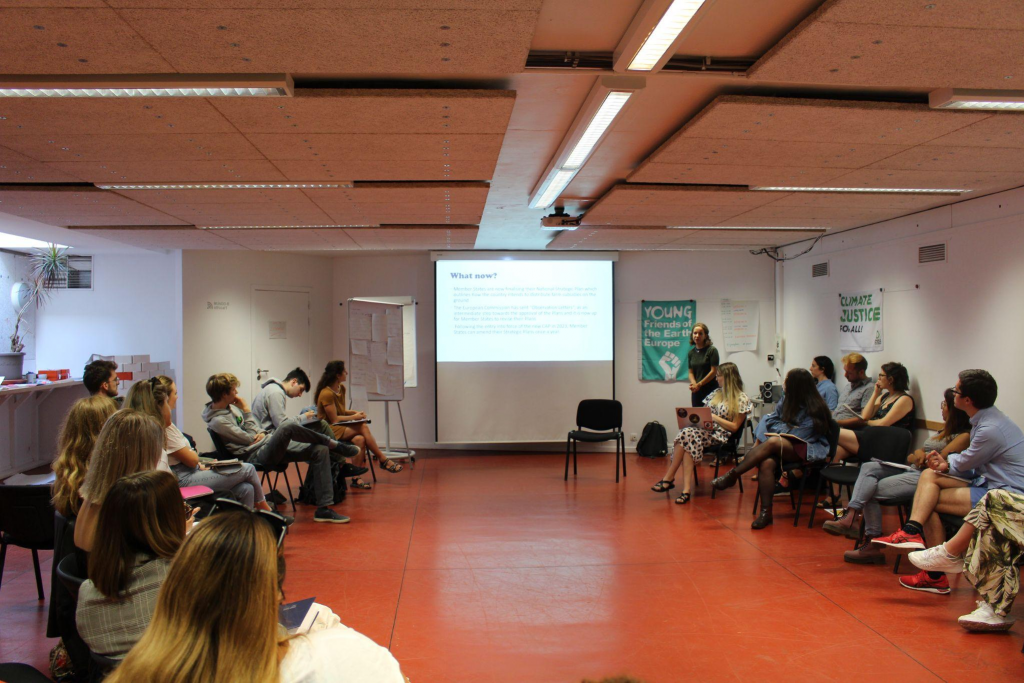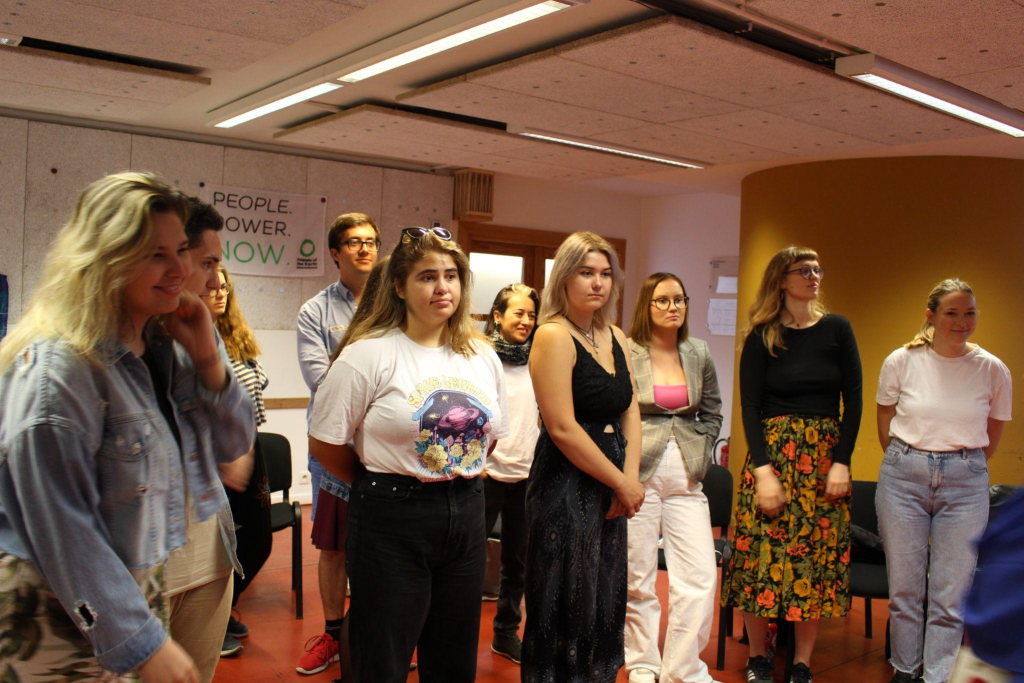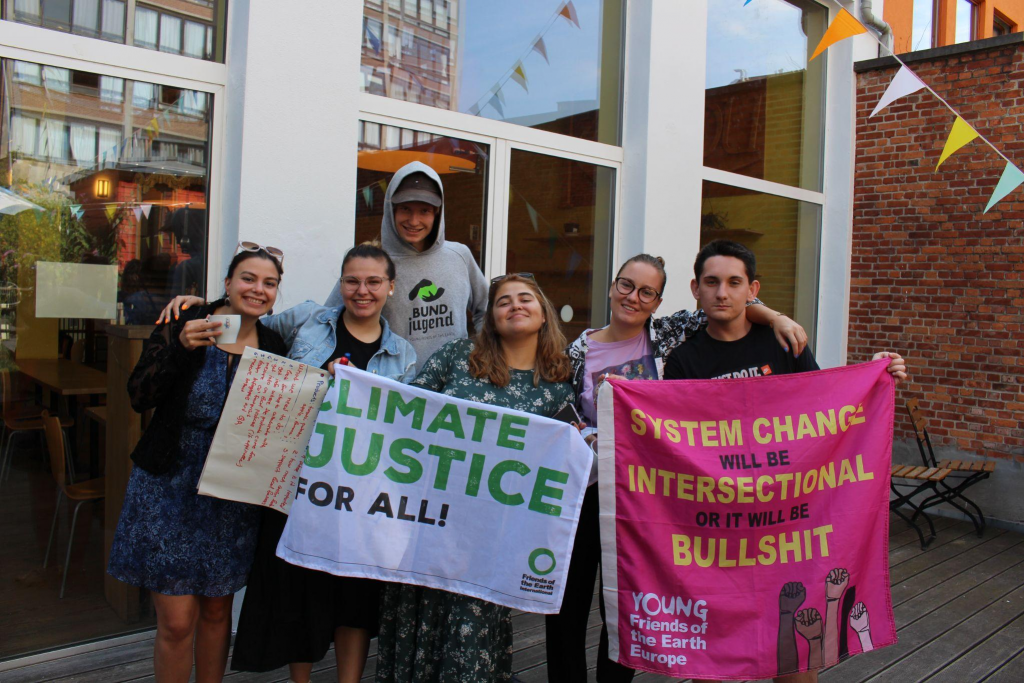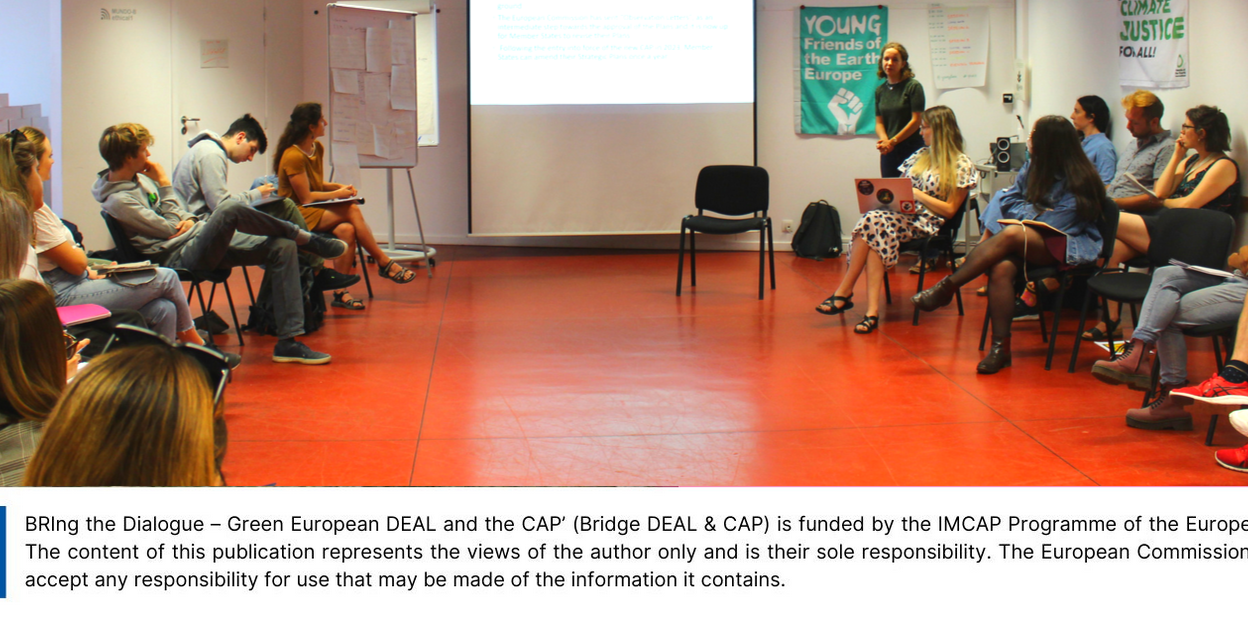A blog inspired by the session: The Common Agricultural Policy and other Agricultural policies at the YFoEE event in Brussels, 2022
What might come surprising to you is that agriculture actually plays a major part in all fields of our daily lives, not just for seasonal food production. The European Union has realized this a long time ago. In 1962 the EU promoted the Common Agricultural Policy (CAP) which is a policy created on 3 principles: a unified market in which there is a free flow of agricultural commodities with common prices within the EU, product preference in the internal market over imports through common customs tariffs, and financial solidarity through common financing of agricultural programs.

Participants from all over Europe had the amazing opportunity to get more informed about this policy and how it affects us all during a networking and capacity-building event hosted by the Young Friends of the Earth Europe in July. The 3 main principles of the CAP were introduced, which are: fostering the competitiveness of agriculture, ensuring sustainable management of natural resources, and achieving a balanced territorial development of rural economies and communities including the creation and maintenance of employment.

Another important topic that was introduced by the international farmers’ movement La Via Campesina was food sovereignty. Food sovereignty is the right of people to healthy and culturally appropriate food, produced through ecologically sound and sustainable methods and their right to define their own food and agriculture systems. The seven pillars of food sovereignty are: focus on food for people, building knowledge and skills, working with nature, valued food providers, localized food systems, localized control, and the fact that “food is sacred”.

You may ask yourselves: How is this connected to Climate Crisis? Well, farming influences how much CO2 is released into the air, how many species will go extinct, how much resource waste will be created, and how big the impact on pollution will be!
Farming, especially factory farming, is a major contributor to the climate crisis as it releases vast volumes of greenhouse gases. Also, by using forest clearance to grow crops, it they ruins vital carbon “sinks” and releases gases previously stored in the soil and vegetation. The rapid industrialization of farming instead of supporting local and smaller farmers creates a range of pollution problems, fragmenting and even destroying natural habitats. The range of wastes from factory farms can be particularly problematic leaking into water courses, and in the worst cases leaving vast “dead zones”, where only a few species can survive.
This is why policies regarding agriculture, like the CAP, need to be on everyone’s reading list! It is very important how the policies are made, who they are tailored for, and to investigate all aspects of the issue. The goal is not to solve one problem while creating 10 more. To find the right way forward, we all need to take part. It doesn’t matter if the CAP affects your country, it doesn’t matter if you are a citizen of the EU, it doesn’t matter if you are a farmer yourself! We need to take action now!
by Marija Burgieva, from North Macedonia


